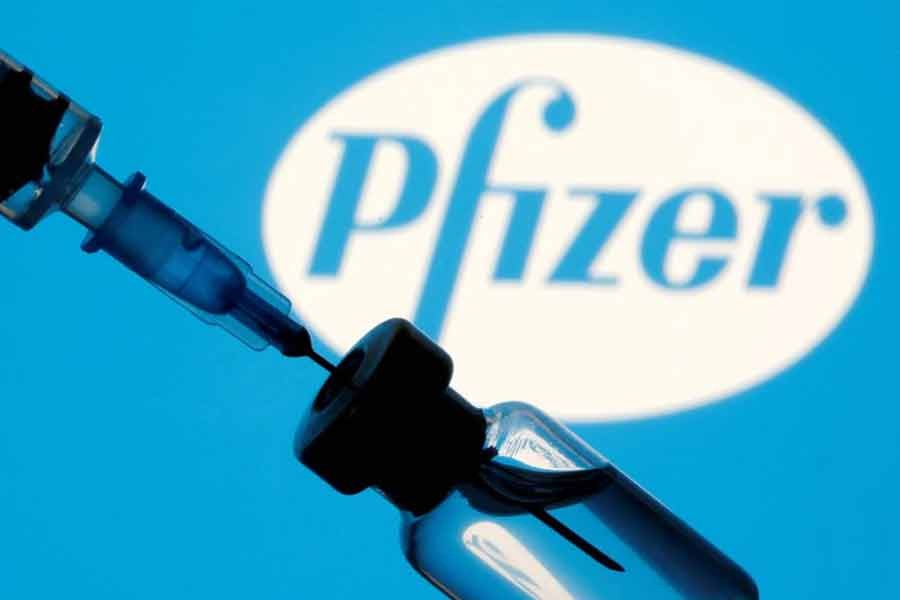Pfizer's plan to as much as quadruple US prices for its Covid-19 vaccine next year is beyond Wall Street's expectations and will spur its revenue for years despite weaker than anticipated demand for the new booster shot so far, analysts said.
The drugmaker, which developed and sells the vaccine with Germany's BioNTech, said on Thursday evening that it is targeting a range of $110 to $130 a dose for the vaccine once the United States moves to a commercial market next year.
Analysts said the move could lead to price hikes by rivals. Pfizer shares were up 4.3 per cent at $44.77 in afternoon trading. Expected price hikes sent shares of rivals Moderna and Novavax surging 9 per cent and 11 per cent, respectively, according to Reuters.
The United States is one of the biggest customers for the Pfizer/BioNTech Covid-19 shots. The companies have varied the pricing during the pandemic, with wealthy countries paying the most for the shots and the poorest countries the least.
Pfizer said on Thursday it had contracts with other developed nations that extend through 2023 with previously agreed upon prices. The contracts would transition to normal pricing as the pandemic distribution model fades, it said.
REVENUE TO RISE
Wells Fargo analyst Mohit Bansal said the new pricing range for the vaccine could add around $2.5 billion to $3 billion in annual revenue for Pfizer.
"This is much higher than our assumption of $50 per shot, and even assuming $80 per shot net price in high-income countries, we see $2 per share upside to our estimates" from the new prices, Bansal wrote in a research note.
Global vaccine access group the People’s Vaccine Alliance, which has pushed for Pfizer to allow cheaper copies of the vaccine to be made, called the proposed price hike "daylight robbery."
The price range announced by Pfizer represented a more than 10,000 per cent markup over what experts have estimated it costs the vaccine makers to produce the shots, it said.
Pfizer's price targets for its Covid-19 vaccine are well above the cost of annual influenza shots. Under the US Medicare program, the government pays around $20 to $30 for standard flu shots and around $70 for high-dose shots.
The public announcement of the new price range could be a green light for Moderna and Novavax to do the same.
"We expect Moderna to adapt to this signal," SVB Securities analyst David Risinger said in a research note, adding that he sees Pfizer/BioNTech, Moderna and Novavax "pricing in a similar range for the foreseeable future."
Moderna had previously estimated commercial price expectations in a range of $64 to $100 a shot. It declined to comment further.
Novavax's Covid-19 vaccine, which was just authorized this year, has not yet gained a significant foothold in the US market.
Novavax Chief Commercial Officer John Trizzino said on Wednesday, prior to Pfizer's announcement, that his company would consider lower prices to gain market share.
"We need to make sure that... we’re stocked at pharmacies, we’re stocked at healthcare providers," Trizzino said. "To the extent that we've got to do something with price in order to ensure that that happens, then maybe that's a lever that we’ll pull."
Due to weak demand for Covid-19 vaccines, Wall Street was expecting price hikes to enable manufacturers to meet revenue forecasts for 2023 and beyond.
Around 19.4 million people in the United States received the updated boosters over the first seven weeks of their rollout despite broad eligibility. In the first seven weeks of the 2021 revaccination campaign, over 27 million people received their third shot even though only older and immunocompromised people were eligible at that point.


